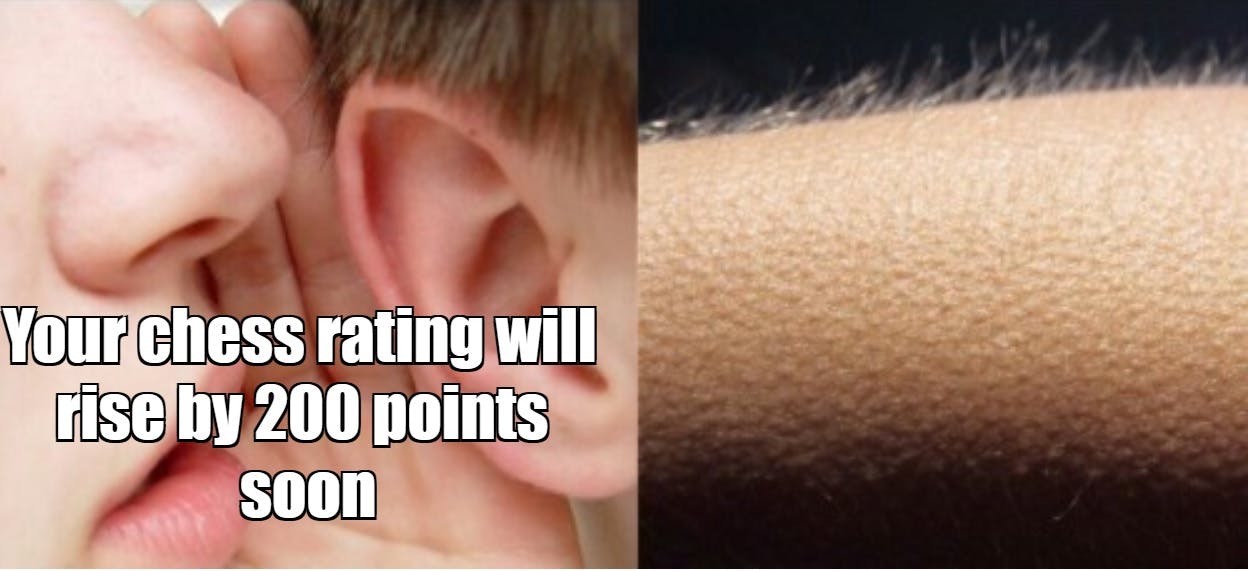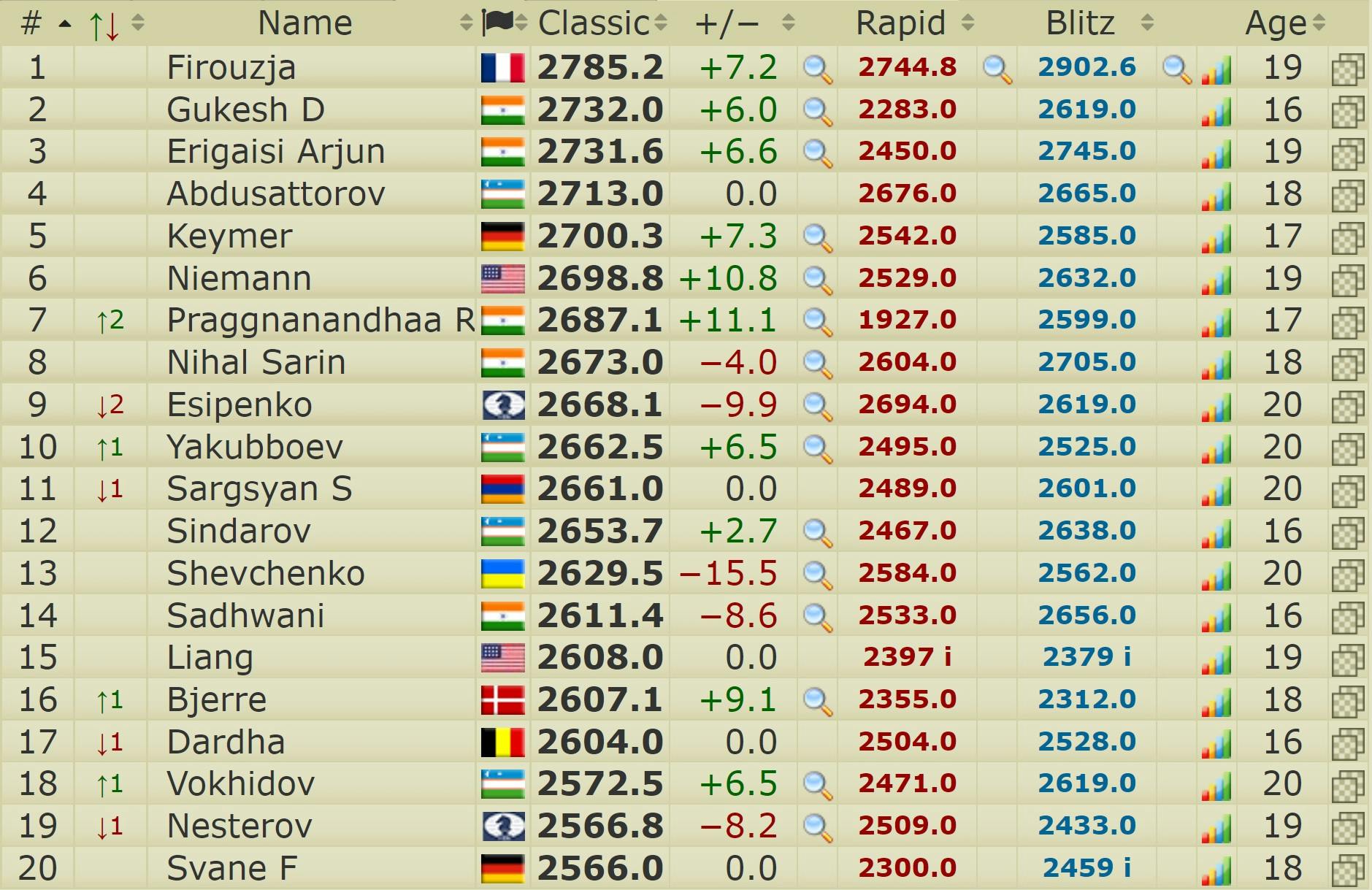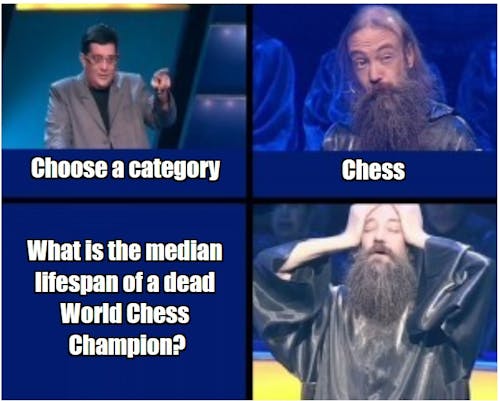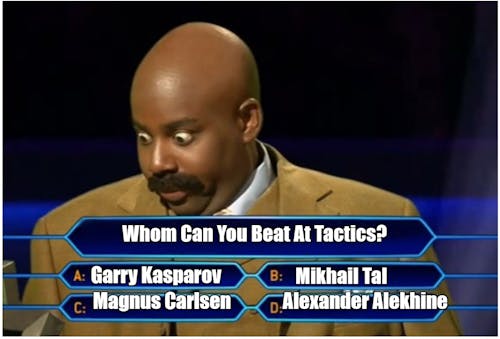Are you sure you want to delete your account?
(This will permanently delete all of your data - purchases, game scores, ratings, etc)
Change your username
Your current username is: guest
Change your account email address
Your current account email is:
Redeem your Fampay code here!
Use your Fampay code to get access to the Play Magnus Plus Membership!

How Do You Improve Your Chess Rating by 200 Points?
How do we take our game to the next level? Let’s say your current rating is X. Here is a nice little exercise: now think of a few players rated X+200, particularly of those whom you know well enough. Why are they better chess players than you? Try to pinpoint as many factors as possible and come up with an objective comparison. Basically, you should compile a dossier about yourself and about them.
Studying has diminishing returns. Improving from 800 to 1000 can be a matter of days. 1400 to 1600 usually takes people months or, for some, even years. The jump from 2100 to 2300 takes ages on average. And 2800 to 3000 is something no human has ever achieved yet.
After a few years of relative hiatus, we seem to be witnessing a generational shift in the chess elite. A squad of young and extremely talented individuals is quickly rising through the rankings. As of this writing, there are five juniors in the world rated 2700+, and one of them, Alireza Firouzja, has already been rated 2800+ before.

Data courtesy of 2700chess.com
Anyway, how is a person rated X+200 different chesswise from someone rated X? It’s not easy to come up with such generalizations because each individual has his own strengths and weaknesses.
For the sake of simplicity, let's evaluate only the three stages of the game - opening, middlegame, and endgame. One 2300-rated player could have a 2400 opening, 2300 middlegame, and 2200 endgame. The other 2300+ player could have a 2200 opening, 2400 middlegame, and 2300 endgame. Even in this example, the difference in opening knowledge for people of the same rating could easily be 200 points. And this is not an extreme case by any means. Some club players out there know openings at IM or even GM level while struggling at pretty much everything else!
Still, for the lower-ranked players, the job of offering exact improvement tips is easier because the sample is larger and the qualification requirements are simpler. After all, there are books covering pretty much everything an Expert should know, but no step-by-step guides on how to become a top GM. An analogy is the system of education: there is your school, followed by college and even Ph.D. studies, but no guides on becoming a world-class scientist. I recall GM Alexander Khalifman saying that any master-level player requires a personal approach in terms of coaching and eliminating weaknesses. For the lower level, it's all about building up a certain well-established base.
From talking to people, I believe most chess players tend to overestimate the role of the opening. 1600s claim that pretty much all they need to become 2000 is to improve their opening repertoire. 2000s say the same about reaching FM level, 2300+. There are even some 2500-rated GMs who sincerely believe that the main thing that separates them from the elite is opening knowledge. However, the truth is that the stronger player is usually somewhat well-versed in a few key departments than the lower-rated opponent. The opening is important, but so is everything else.
GM Alex Yermolinsky makes an interesting attempt to come up with such a generalization in his book “The Road to Chess Improvement”. Here is a quote:
a) 1800 vs 1600 blunders less frequently;
b) 2000 vs 1800 better understands his set of transitional positions from opening to the middlegame;
c) 2200 vs 2000 better feels the flow of the middlegame, uptrends and downtrends, critical points;
d) 2400 vs 2200 better performs in the transitional stage from the middlegame to the endgame and knows and plays the endgame better;
e) 2600 vs 2400 has much more knowledge of typical middlegame and endgame positions (as a result of the elaborate preparation of one's opening repertoire) and is more skillful in tactics and time management.
Do you agree with his conclusions? Do they support or contradict your personal experience?

Alireza was the 14th player in chess history to join the elite 2800+ club
Another popular question these days is what it takes to progress from being an aspiring 2600+ player, who makes a living by playing club league games and winning mid-tier open tournaments, to a 2800+, who is highly sought in any elite closed round robin. Here are a few observations I have made over the years by observing some of the best players in the world:
While some 2600s play so much they don't have enough time to work on their openings, 2800s do invest a huge amount of time in opening preparation.
2800s face more or less the same people year after year, so they spend less time on "general" preparation and more on targeting their main competitors' weaknesses. At this stage, creating a dossier about the player and his main opponents is essential, whereas it is less important for people who mainly play open events with mixed opposition.
- 2600s usually work on their own or with a friend. A 2800 can afford to have a second or even a team that helps him prepare.
- Your average 2600 probably doesn't have any special devices and analyses on a regular PC. 2800s rent or own chess servers, allowing them to save time on analysis and develop better ideas.
- 2800s tend to be much more hard-working than 2600s. They generally invest more time into studying chess and can afford this since they don't have to compete as often to make a living.
- 2800s are fitter and lead a healthy lifestyle. For example, no member of the current top-10 smokes. Most top players pay attention to physical exercise, sleep, and proper nutrition. In contrast, there are quite a few 2600s out there who smoke, drink alcohol, don't do any sports, etc.
- 2800s are more disciplined and ambitious. The typical 2600 is more or less used to the grind, traveling from one open event to another and not hoping to change his life much. If anything, they are afraid of losing the level they have already attained. The people who hit 2800+ typically invest in themselves and set high goals. Most of them aim to become the World Champion.
Regardless of your current rating, I wish you the best of luck on your chess journey!
Interested in taking your game to the next level? Try out Magnus Trainer, an app designed by 5-times World Chess Champion Magnus Carlsen and his star-studded team of experts!


